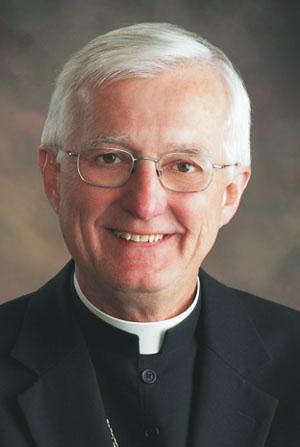
By Barb Arland-Fye
Bishop Martin Amos of the Davenport Diocese believes the health insurance reform legislation that the House passed March 21 is deficient and expands funding for abortion.
In a statement released March 22, Bishop Amos said: “The bishops have opposed the passage of this bill because it expands the role of the federal government in funding and facilitating abortion and coverage for abortion. The fact that an executive order is necessary to clarify the legislation points to deficiencies in the statute itself.”
The U.S. bishops have actively supported universal health care for decades, but insist that health care reform truly protects the life, dignity, consciences and health of all.
Jeanne Wonio, pro-life coordinator for the Davenport Diocese, is proud of Bishop Amos and his colleagues for “standing up for life.”
She also expressed disappointment with the bill the House passed, saying it “doesn’t do what I think the American people wanted from this bill.”
She believes that most people “wanted their own health care insurance to be left in place. They were willing to cover people who didn’t have medical insurance or weren’t able to get medical care. I think most people wanted them covered.”
Her biggest concern, however, is that the legislation doesn’t recognize the Hyde Amendment, which forbids funding of most abortions. An executive order stipulating that the Hyde Amendment would apply to health care reform legislation is no guarantee that abortion funding will be prohibited, she believes.
“My understanding is the executive order will probably be a temporary order and in the long run it won’t have meaning,” said Wonio of Davenport. She’s also concerned that the legislation doesn’t provide a strong conscience clause to protect doctors and other health care workers from performing procedures that go against their morals. She’s concerned that the legislation leaves out immigrants — those in this country legally and those who are not. And she worries about “so-called death panels,” which she believes would determine whether or not an individual could receive certain medical procedures.
“The way (the health care legislation) was passed was not the traditional way bills get worked on and passed with bipartisan support,” she noted. “The bill itself is pretty sketchy.”
For Catholics, the bill’s passage means continued vigilance on health care issues.
“As members of the Catholic Church we have to continue to stand up for life. All medical procedures must be life-affirming,” she said.








